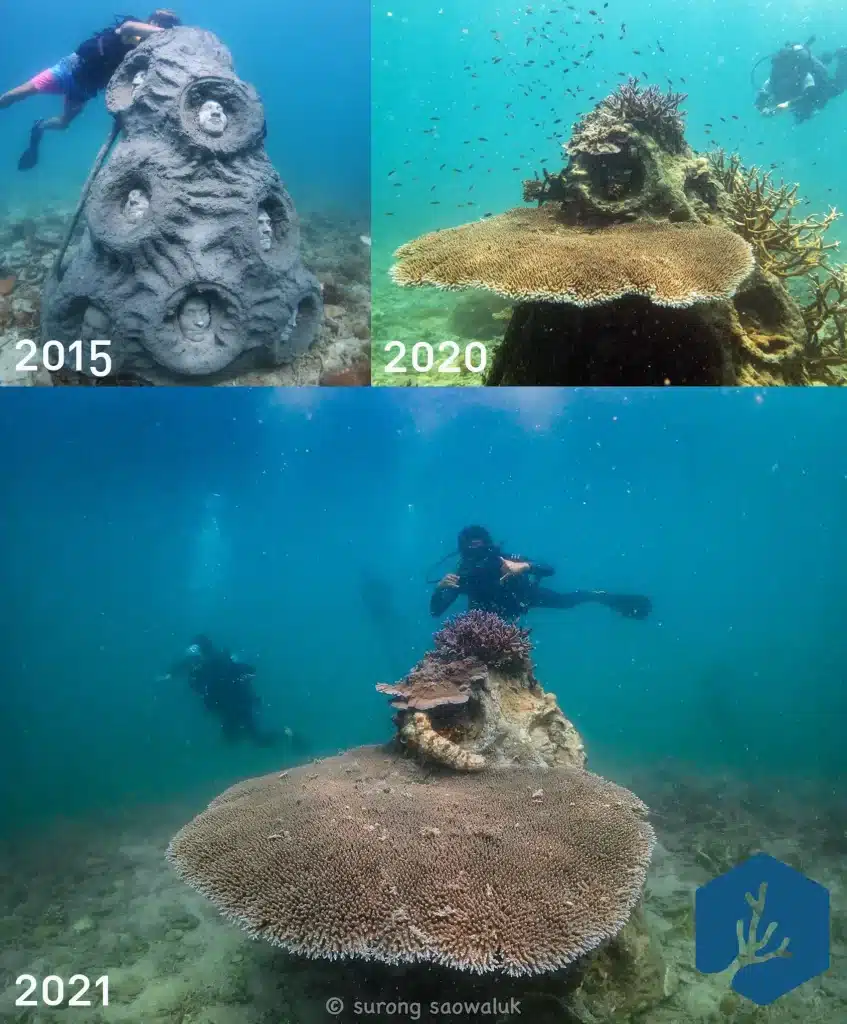As coral reefs across the globe continue to experience startling declines, the calls to protect, preserve, and restore these habitats have never been more critical.
The latest Intergovernmental Panel on Climate Change (IPCC) has stated that global coral coverage has declined 50% since the 1950s, with some regions experiencing even more startling rates of decline. In the face of such staggering losses in coral coverage, marine conservationists and coral reef managers need a variety of tools to help them combat these declines.
Artificial reefs are one such tool and have been instrumental in facilitating reef recovery, particularly in the wake of localized disturbance events. If properly planned, designed, maintained, and monitored, they can provide various ecosystem services that simulate natural coral reef systems and provide a stable base for larval recruitment. The added structure and stability can, in turn, lead to coral reef recovery and the creation of new coral reef areas.

In this course, you will learn the fundamentals of artificial reef theory and the many techniques employed in their creation. We will explore the extensive history of artificial reefs, learning from the many successes and failures in their implementation to better inform your efforts and improve the chances of success during your projects. This course will also introduce you to the many materials used in constructing artificial reefs, weighing up the pros and cons of these substrates for coral restoration activities.
This course will help you to understand where and when artificial reefs should be used, how best to plan and construct them, and how to make them a part of your holistic coral management program. By the end of this course, you should have a better understanding of the myriad ways in which artificial reefs can benefit marine life.
It is essential to consult your local government and refer to the marine policies in the region you are working in, before engaging in artificial reef and reef restoration activities. Gaining the appropriate permitting and licensing from your local marine authority is crucial before beginning these projects. Without the support of the local stakeholders within your region, the likelihood of achieving success through these means is low. A great way to avoid this is to be transparent with your plans and help local stakeholders (fishermen, tour operators, business owners, etc….) understand the direct benefits that your success will have on their activities.
A well-planned and successfully implemented artificial reef project can profoundly impact those involved in its creation and restoration. To see a sandy sea floor that once housed a vibrant coral reef community filled with life again due to your actions is an empowering and lasting feeling that can soften the hearts of even the greatest environmental pessimists.




